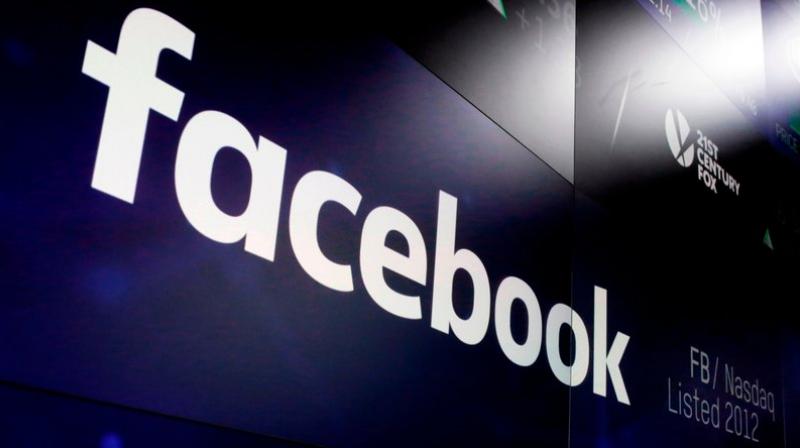Facebook removes accounts involved in political influence campaign
The world's biggest social media network has not yet attributed the accounts to any group.

Washington: Facebook has removed 32 fake accounts and pages that it says were involved in "coordinated inauthentic behaviour" and political influence campaign to manipulate voters ahead of the November mid-term elections in the US.
Though the world's biggest social media network has not yet attributed the accounts to any group, it says the campaign does bear some resemblance to the propaganda campaign allegedly run by Russia's Internet Research Agency (IRA) in the run-up to the 2016 US presidential election.
Facebook has been grappling with continuing public backlash for being slow to recognise Russian interference in the 2016 US presidential election, along with widespread concerns over its past data-sharing practices.
The company's stock has plunged more than 20 per cent since last week, after it reported slower user growth and rising costs for security and safety programs to crack down on abuse of its platform.
"This kind of behaviour is not allowed on Facebook because we don't want people or organisations creating networks of accounts to mislead others about who they are, or what they're doing," it said.
Noting that Facebook is still in the very early stages of its investigation and does not have all the facts - including who may be behind this, the company executives warned that they were dealing with increasingly sophisticated political operatives, who are finding new ways to abuse Facebook's platforms.
"We've made it harder for inauthentic actors to operate on Facebook," said Facebook chief operating officer Sheryl Sandberg.
"Yet we face determined, well-funded adversaries who won't give up and who are constantly changing tactics."
"At this point in our investigation, we do not have enough technical evidence to state definitively who is behind this," said Nathaniel Gleicher, Facebook's head of cybersecurity policy.
However, Senator Mark Warner, the top Democrat on the US Senate Intelligence Committee, issued a statement tying the latest Facebook activity directly to Russia. After its latest discovery, Facebook said it had removed 17 profiles and eight pages, along with seven accounts on Instagram, the Facebook-owned photo-sharing app.
The earliest was created in March of last year, while the most recent was created this May. More than 290,000 accounts followed at least one of the suspect pages, which had names like Aztlan Warriors, Black Elevation, Mindful Being and Resisters, the company said.
The organisers behind the accounts went to great lengths to conceal their identities including using virtual private networks – software that masks the geographic location of computers – and Internet-based phone numbers, company officials said. They also used third parties to publish paid advertisements on Facebook, in violation of the social-media firm's policies banning foreign entities from buying US political ads.
The accounts spent USD 11,000 to run 150 ads on both Facebook and Instagram between April 2017 and June of this year. Facebook previously said roughly 470 fake accounts had spent USD 100,000 on more than 3,500 ads surrounding the 2016 election.
Facebook said it all started two weeks ago when it identified the first of eight pages and 17 profiles. The pages created about 30 events since May 2017. About half had fewer than 100 accounts interested in attending. The largest had approximately 4,700 accounts interested in attending, and 1,400 users said that they would attend, it said.
One fake page called 'Resisters' was involved in co-ordinating a protest in Washington between August 10-12. The 'No Unite the Right 2 – DC' event was meant to be a counter-protest to a rally planned by right-wing groups as a follow-up to last year's deadly 'Unite the Right' protests in Charlottesville.
Fake accounts contacted administrators of five other legitimate Facebook groups to help plan the counterprotest, including offering support for transportation and logistics, and posting ads to hire an event co-ordinator.
Facebook said it had disabled the event and was in the process of contacting nearly 2,600 people who had said they were interested in attending.
"These bad actors have been more careful to cover their tracks, in part due to the actions we've taken to prevent abuse over the past year," Facebook said.
For example, they used virtual private networks (VPNs) and internet phone services, and paid third parties to run ads on their behalf.
"We have found evidence of some connections between these accounts and IRA accounts we disabled last year, which is covered below. But there are differences, too. For example, while IP addresses are easy to spoof, the IRA accounts we disabled last year sometimes used Russian IP addresses. We haven't seen those here," it said.
After being caught flat-footed by the IRA's efforts ahead of the 2016 presidential election, Facebook has expanded its security team, hired counterterrorism experts and recruited workers with government security clearances.
Facebook has deployed technology tools like artificial intelligence and thousands of people to work on security as the company's "major focus" this year is to protect the integrity of upcoming elections in several countries, including India, on its platform, its founder and CEO Mark Zuckerberg had said earlier.

